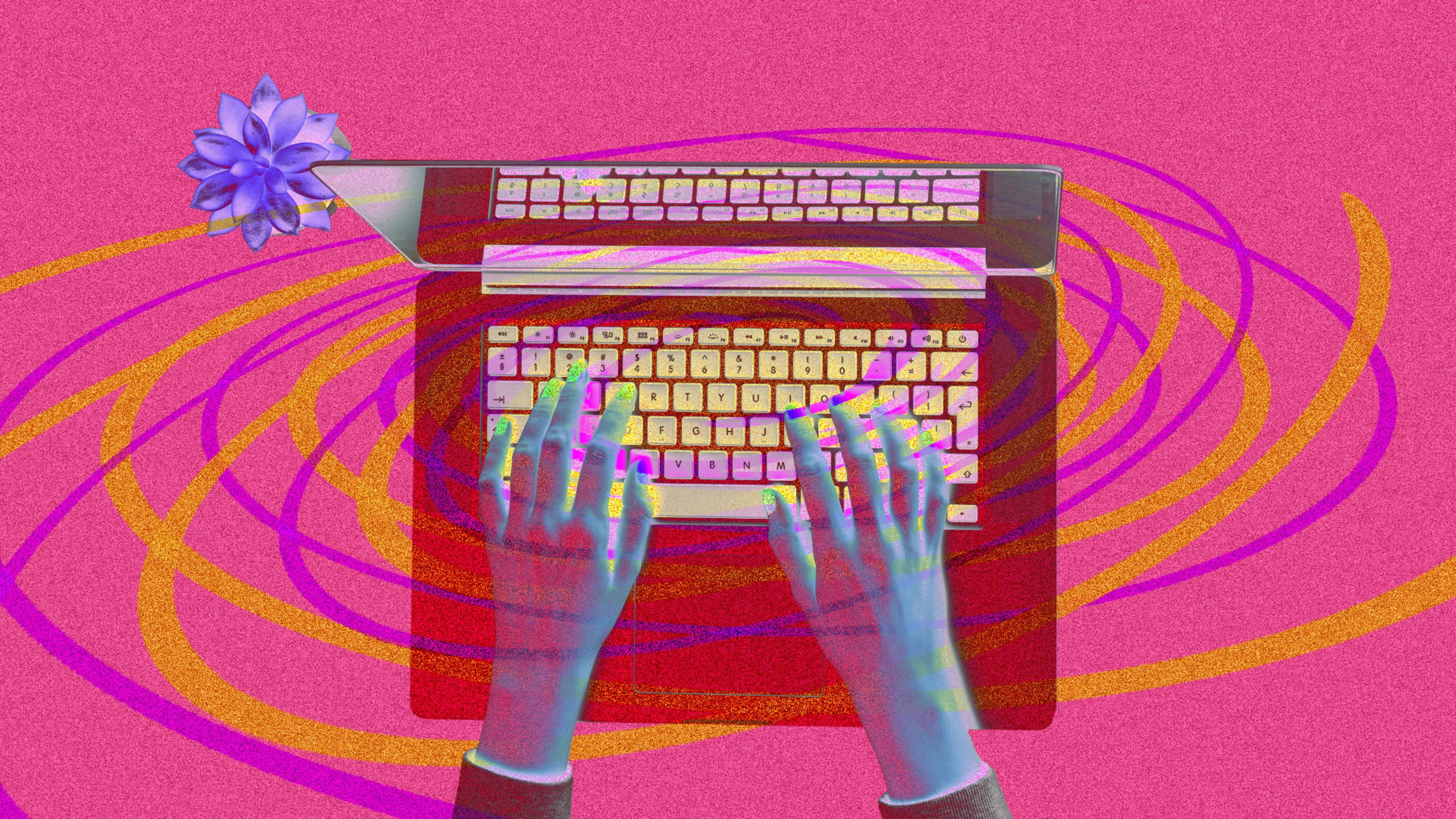I’ve been productivity-obsessed for years. Books, blogs, podcasts—you name it, I’ve probably inhaled it, and if I haven’t? Let me grab a pen and write down the name. So when my therapist asked me if I had attention deficit hyperactivity disorder, also known as ADHD, I felt like my world had been tipped upside down. I knew all of my problems already (or so I thought), and—at 30 years old—I couldn’t have ADHD.
Imposter syndrome, sure. But hopping from job to job, easily bored with my work, constantly distracted by a new project or side hustle idea? I thought that was just life as a creative entrepreneur.
Unfortunately, however, I also couldn’t actually remember the last time I had a “normal” workweek that didn’t involve losing hours at a time to simple distractions, feeling massively overwhelmed by my growing to-do list, and avoiding even the simplest projects. As a chronic overachiever driven to success, I prided myself on my ability to do amazing work quickly, but—in the same breath—I also knew how much I struggled to put in the average 40-hour workweek.
I told myself that my struggles with productivity were normal, but—in reality—they were anything but.
A month later, ensconced in a psychiatrist’s office, I broke down in sobs when I admitted to her that I’d struggled with work—and my self-worth in relation to it—for years. Thanks to my inability to get things done, I didn’t have the words (let alone the awareness) to identify the problem, and I was exhausted from trying. Even the simplest task could feel like a five-hundred pound weight, meaning even if I didn’t succeed in lifting it, I was consistently drained from the effort.
“I want to work,” I told her. “I’m not lazy. I’m not procrastinating. I’m trying but sometimes it doesn’t actually do anything. I just want to work.”
When she finally confirmed my diagnosis, I was equal parts angry and relieved. It hurt to have a massive part of my life—something I’d wrestled with for decades—reduced to something that felt simple. The more I learned about ADHD, the more I realized how pervasive its effects were in my life. It had an impact on everything from my career trajectory to my reading habits, and I was frustrated to learn that, at 30 years old, my ADHD had been holding me back personally—and professionally—without even realizing.
And I definitely wasn’t alone.
As it turns out, most women go undiagnosed with ADHD. We were never hyperactive little kids in the classroom, and many of us go through great lengths to hide our struggles. The stress and pressure to “keep up” can lead to overwhelm, exhaustion, anxiety, and even depression —something many women with undiagnosed ADHD often develop—and we’re more likely to overcompensate in other areas as well. As a result? Studies show the difficulties we’re facing usually go unnoticed by others and ourselves.
I certainly didn’t notice.
As an inattentive subtype (previously known as ADD), I was previously diagnosed with both anxiety and depression that years of treatment failed to help. Throughout adulthood, as responsibilities continued to climb—and the pressure to be successful grew—my mental health got worse. I saw multiple doctors and therapists. I tried medication and holistic treatments. I tried mindfulness, meditation, bullet journaling, the Pomodoro technique, and more, but both my mental health and my productivity levels crumbled.
Eventually, I could barely manage two to hours of work per day—which only made my anxiety, depression, and self-loathing worse. I was miserable. I was terrified I was going to get fired. And I thought it was my fault. But like many other women with ADHD, I wanted to work. My career showed promise early on, but I consistently failed to break through to the next level. Instead of climbing the corporate ladder, I started to backslide.
Once the shock wore off, I was excited about my ADHD diagnosis. I thought everything would get easier overnight. Treatment would make my productivity skyrocket, and—as a result—my career would regain the momentum I was worried I’d lost. And, at first, I was right. My anxiety and depression dwindled, and I saw a dramatic improvement in the first few months of treatment. It finally felt like things were getting back on track, but it also made me realize that productivity is far more complicated than people realize.
The one-size-fits-all solution for productivity doesn’t actually exist.
While my diagnosis and medication both helped immensely, I realized that, when it comes to productivity, I was searching for something that wasn’t real. I thought if I found that one quick fix or trick, a new app or tool or journaling method, everything would be unlocked for me. But instead of finding the keys to my success, I didn’t realize that I was creating my own barrier to it. The one-size-fits-all solution for productivity doesn’t actually exist.
Instead of spending all of my time pressuring myself to fit a certain mold (and berating myself when I inevitably don’t) I’m learning to give myself grace. Much like success, I’ve learned that productivity needs to be self-defined because there is no “right” way to work—especially when you’re dealing with something like ADHD or another mental health issue—and that’s okay.
The sooner you realize that, the sooner you can start getting things done.
Recognize your brand’s excellence by applying to this year’s Brands That Matter Awards before the early-rate deadline, May 3.
